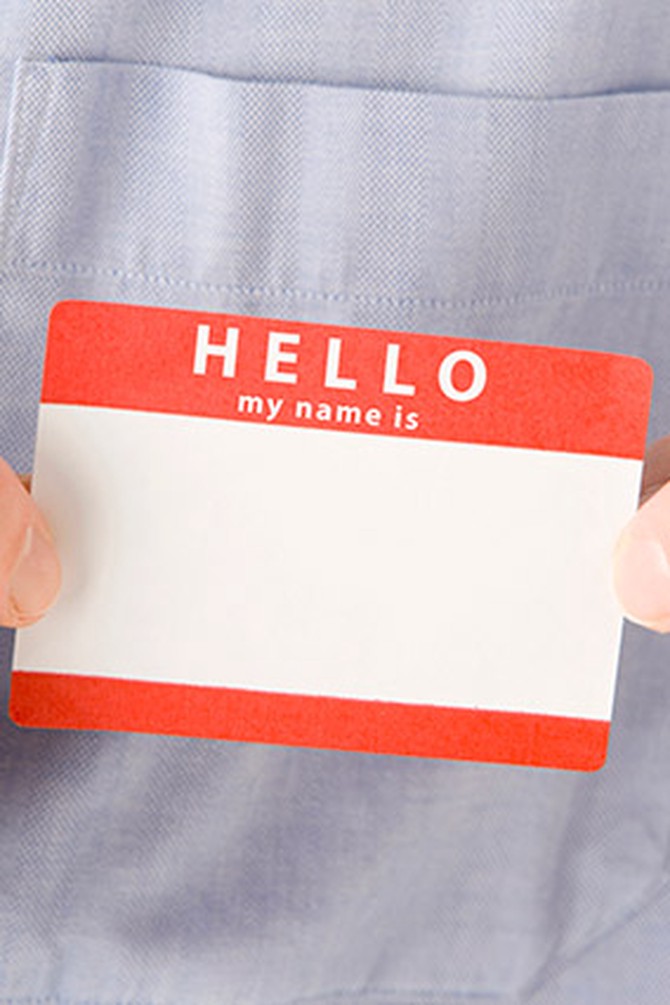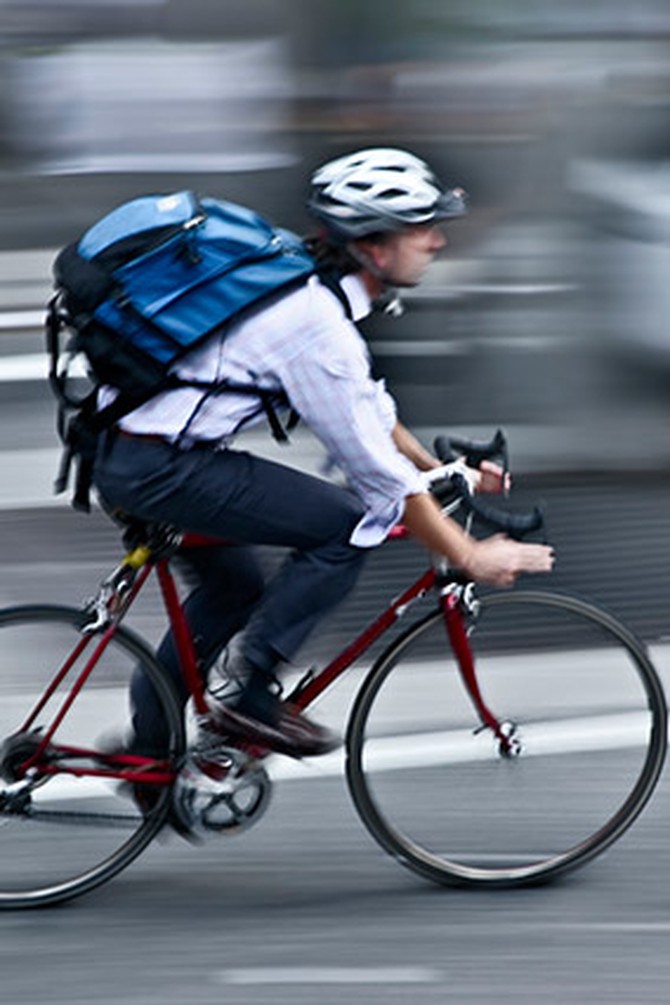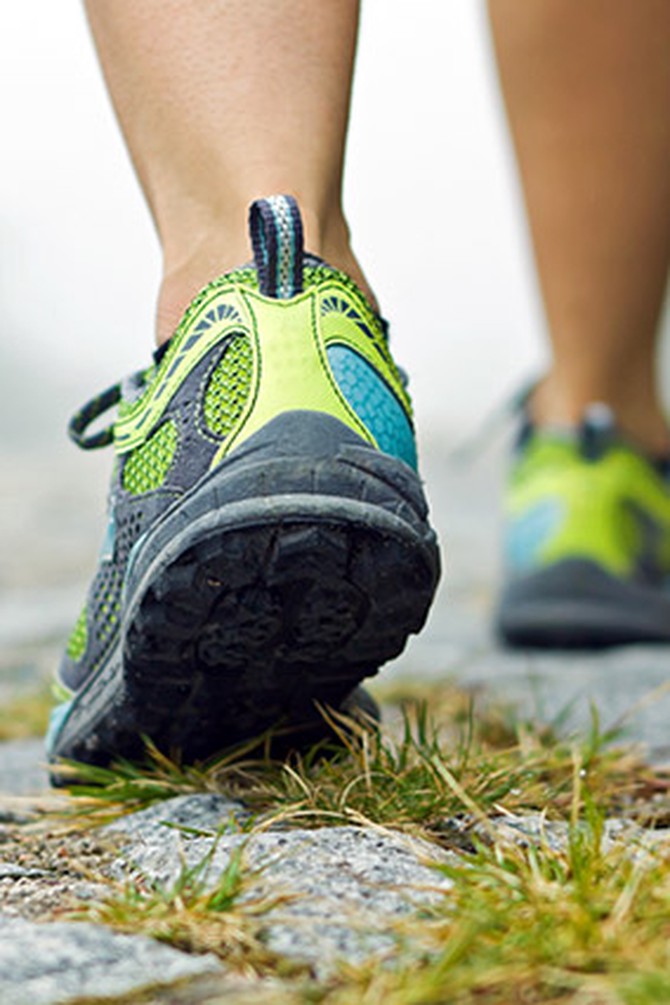Meditation for People Who Hate "Om"
If the thought of sitting cross-legged makes you antsy, try these ways to calm down, clear your chattering mind and possibly even transcend.
By Jena Pincott

Photo: Thinkstock
The Name-and-Tame Meditation
Angry? Attach the phrase "this is anger" to every furious thought. Anxious? As you suffer it, say, "This is anxiety." Twenty-five hundred years ago, Buddha taught that we manage our emotions better when we label experiences. Science is catching up. When researchers at UCLA looked at labelers' brain activity in fMRI machines, they saw more activity in the ventrolateral prefrontal cortex, the part of the brain that processes emotion and inhibits behavior, and less activity in the amygdala, which is linked to emotional reactions (this also happens in traditional meditation). In effect, labelers feel less fearful, sad, pained or stressed. You wouldn't think that something as simple as attaching words to feelings (in speech or writing, it doesn't matter which) could make you feel so much calmer, but it does.

Photo: Thinkstock
The "Angry Birds" Meditation
The world's third-ranking Buddhist, the 17th Karmapa Lama, Trinley Thaye Dorje, made shock waves when he revealed his secret for calming the unquiet mind—PlayStation video games. "I can release that [negative] energy in the context of the illusion of the game. ... I don't have to go and hit anyone over the head," he said in an interview with The Times of India. Science confirms that. "Gaming can be a type of meditative practice," psychologists Jayne Gackenbach and Johnathan Bown say, citing their findings: increased awareness, calm control, absorption, heart rate variability and lowered stress. No one is saying that reaching the highest level of Dead Space 2 is exactly Nirvana. But, as the Karmapa Lama says, it's "an emotional therapy."

Photo: Thinkstock
The Bicycling-in-Traffic Meditation
We love how author/comic Tim Kreider says he is never anxious or afraid when riding his bike in Manhattan traffic. "You are forced, under pain of death, to quit all that silly ideation and pay attention. It's meditation at gunpoint," he writes. Any cardio workout involves the release of the hormone serotonin, which increases concentration and calms the amygdala, the fear center of the brain, says John Ratey, MD, a Harvard Medical School psychiatrist and author of the book Spark: The Revolutionary New Science of Exercise and the Brain. But if you're streaking through the streets on your racing red Bianchi (or doing anything that gives you a similar rush), you also get an extra boost of norepinephrine, a neurotransmitter that has the mind-sharpening, energizing effects of Ritalin and Adderall. You're running a built-in survival program, Ratey says. You're alert, in control and completely present—you're not worrying about anything else for once. (Break your anxiety cycle but not your skull: Remember to wear a helmet.)

Photo: Thinkstock
The Best-Foot-First Meditation
We admit it's sometimes hard to meditate—legs in lotus, back stick-straight, mudra fingers on knees—especially when our sciatica is flaring up and a frantic mosquito enters our ear canal. Here's a solution for the ADD-addled: the walking meditation. As in the traditional practice, the key is mindfulness. Walk slowly, focusing on breathing, staying present and turning your attention inward. "You have no purpose or direction in space or time," Buddhist monk Thich Nhat Hanh says in The Long Road Turns to Joy, his inspiring guide to spiritual perambulation. "Mindfully experience your foot, the ground and the connection between your foot and the ground."

Photo: Thinkstock
The Isabel Allende Meditation
One of the bits of advice in Silas House's inspiring essay "The Art of Being Still" is to put yourself in the mind of a fictional character. Notice what she'd notice; react how she'd react. This exercise can "transform the mundane task of grocery shopping," House writes. (What would Siddhartha do when bumped rudely in the cereal aisle?). When people identify with a character’s emotions, beliefs, and internal responses—a process called “experience-taking”— they make changes in their own behavior and thoughts, a study at Ohio State University finds (especially when reading books written in the first-person.) Those changes can be positive. If your goal is enlightenment, choose your book/incarnation carefully: Paul Coelho's Aleph, not Bret Easton Ellis' American Psycho.

Photo: Thinkstcok
The "Bohemian Rhapsody" Meditation
"Music without words means leaving behind the mind. And leaving behind the mind is meditation. Meditation returns you to the source. And the source of all is sound," the mystic poet Kabir said. Cardiologist Luciano Bernardi at the University of Pavia took this to heart. Studying music's meditation-like effects on the body, he found that sequencing is crucial. First, listen to any song with a fast tempo (say, Taylor Swift's "Red" or "Nessun Dorma" from Puccini's Turandot), which focuses your attention and increases your heartbeat, breathing and blood pressure. Then choose a slow song (like Beethoven's "Moonlight" Sonata), which calms your nervous system. (Queen's powerful, fast-slow "Bohemian Rhapsody" does this all in one song.) The crucial part happens in between songs (or tempos): Listen to two minutes of silence. The release you get from going intensely fast to dramatically slow, with silence in between, is similar to that achieved in transcendental meditation, Bernardi found. It's a more profound level of relaxation than when listening to even the slowest music.

Photo: Thinkstock
The Loofah Meditation
You have 10 minutes. Breathe in the heavenly fragrance of your pineapple-clementine-ylang ylang-Twinkie shampoo. Breathe out. Observe every detail, present but not attached. Feel the warm, pulsing spray on your back. Listen to the water run, and watch the drops that race one another down the glass. Let your thoughts slip away with them. This is it—the best way to shed stale, impure emotions, along with old skin cells. Take a hot or warm shower and then slowly lower the temperature to cold—even for just 10 seconds, Lorin Roche, PhD, writes in his guide Meditation Made Easy. "The shock becomes invigorating rather than painful. And we all need help in gracefully meeting the shocks that life provides." You'll step out cleaner and clearer.
Next: The absolute worst things to do when you're stressed out
Next: The absolute worst things to do when you're stressed out
Published 02/27/2013

